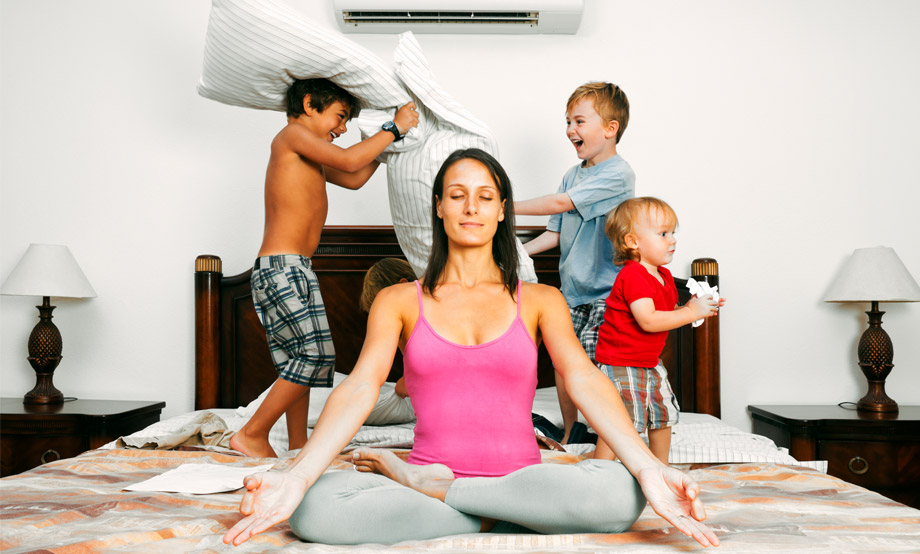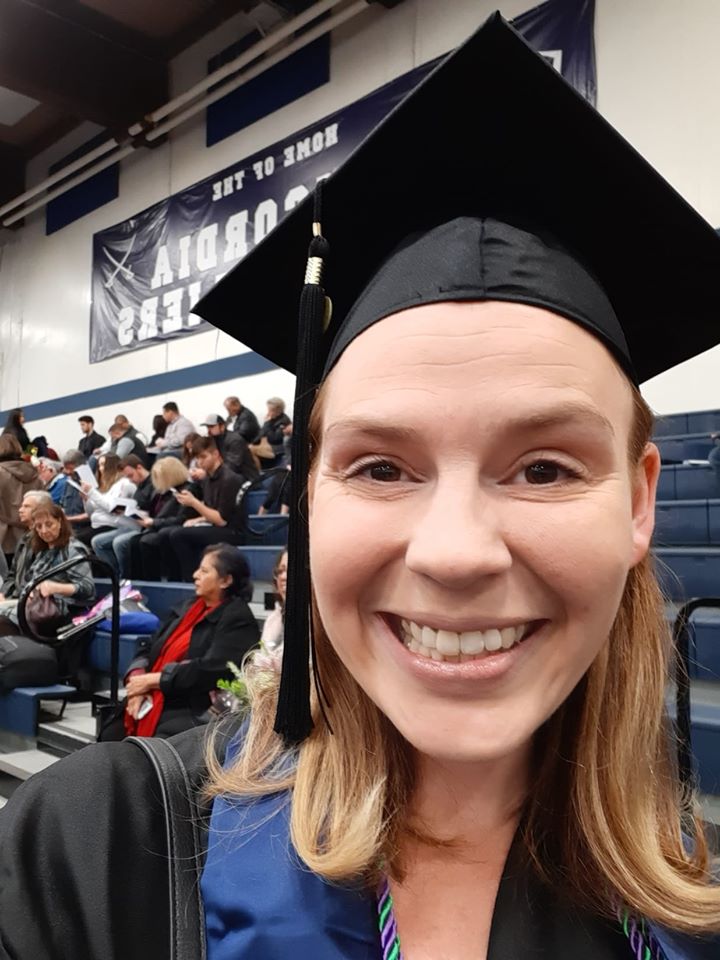
As I blissfully type this article, my kiddos are watching: “Trolls: World Tour.” Their little bellies are full (for the moment), their distance-learning lessons are complete, and we have already spent hours playing outside. Right now, they know that mom is having her “free time.” Of course, they will still ask me for a million things. But mostly, they will let me be. Why? Because this time is listed on our schedule.
On their section of the schedule that is noted “free screen time” there is a corresponding section that reads “parent free time.” I use my free time to write, watch TV in a separate room, or catch up on social media/phone calls. For the first few years of parenting, I would wait until my husband got home to “take a break.” But with his unpredictable work hours, I found myself waiting until 8:00 p.m. some nights, which is the kids’ bedtime. Many days, there was no break because I was relying on someone else to give it to me. I had to find ways to make that time happen. Turns out, even if you are parenting alone, it can be done. Through a combination of “first-then” statements, telling your kids about your interests, creating different ways for the family to spend time together (and apart!), and a loose schedule: small pockets of parental free-time is achievable.
First-Then Statements
I studied Early Childhood Development for several years. There is a wonderful practice that has helped me immensely called a “First-Then” statement (NAEYC, 2018). It means: if your child asks to do something, but you/they have to get something else done: you explain why they can’t do the chosen activity right then, and then you drop the bomb on what has to be done first. You design your statement to them specifically using the words “first”, and “then.” I like to throw in a little sympathy before the statement. Something like this: “Aww honey. I know you really want to watch “Trolls: World Tour.” First: we must do your lesson, but then we can watch the movie!”
In that small sentence you are doing the following:
1) showing sympathy (even if it is not necessarily sincere!)
2) acknowledging that you heard their exact request by repeating it.
3) reassuring them that it will happen, and when it will happen.
4) listing the obstacle that they must complete before their desired activity can occur.
In our family, we sum this idea up by saying “We have to do the boring stuff before we do the fun stuff.” This statement even works for your adult chores. Example: “Aww guys. I know you want to go to the playground. First, we have to stop by Safeway and grab stuff for dinner, make a quick stop at the bank, but then we are off to the playground!”
These statements show kids that we are on the same team. Grocery shopping, bill-paying, and responsibilities are certainly not fun to adults. But that does not mean that we do not have to do them.
First-then statements helped me to find free time because it explained the chores that could not be avoided each day, like grocery shopping and school assignments.
Relaying Your Own Interests
Tell your kiddos about what you like to do. Your hobbies, your interests, and what you “can’t wait” to do for your chunk of free time. Won’t they be surprised that the things you enjoy are not necessarily cleaning, cooking, or doting on them!
I have always told my kids about what show it is that I am eager to watch, what book I just checked out from the library, or what buddy I can’t wait to call when my free time comes on a given day.
Defining what your free time is has been useful in our family because it also provides some kind of a time frame. If it’s a show: “OK guys, I will be done in an hour when this episode is over.” If it is a book: “Alright guys, I will be done when I get to chapter eight.” If it is a phone call, “I am going to talk to my dad for 30 minutes, and then we’ll head outside to play.” Not all guardians will choose to do this, but I tell them that they are free to check in with me during free time to check my “progress,” ha-ha.
Loose Schedule Planning
I prefer to make our schedules by activity, not by timeframe. I learned that we could stick to a regular time for “bedtime,” but my kids do not wake up at the same time every morning. Not even close. Even on school days, sometimes I have to wake them up, sometimes they wake up before the alarm goes off. The weekends? Who knows when they will wake up?
Because of the uncertain wake-up time, I cannot really plan exact times—except for bedtime. So, I started just listing what we do during the day, not what time we do it. Currently, during this wacky time of quarantine, our schedule is something like this: wake-up, breakfast, distance-learning lessons, free art or Legos, lunch, play in bedrooms with their millions toys—together or individually, outside time, free time/TV time: for kids and grown-ups, short walk “as a family,” dinner, baths, watch a show together “as a family” off to bed! I know it is not perfect, but it has worked well for us.
Different “Family-Time” Combinations
We also try to be mindful of the ways that we like to spend time as a family. I have discovered there are all these different combinations that the kids like. The two kids playing together, the two kids playing independently, one kid with both parents, one kid with one chosen parent, and, of course, our family of four hanging out.
Nature has helped us with this. It seems our little guy wakes up earlier than sissy, so occasionally he gets some early-morning time with us. Even though we put them to bed at the same time, occasionally, we let our big girl sneak out and hang with us a little bit after her little brother falls asleep. We do our best to be mindful of our different family combinations. This also provides hidden pockets of free time for one or both parents.
I realize that our households and parenting situations all differ. You will find what is successful for your own family unit by trial and error. The main point I want to relay is, I was thrilled when I found that I could take small portions of free time when my children were awake! I tried for many years to wait until they went to bed at night, or wake up before they woke up in the morning. I was burning the candle at both ends by doing this.
In this time of quarantine, I would guess that many people are parenting more than they were before. Breaks for yourself, at least to me, seem more important than pre-quarantine times. I say with confidence that you are still a wonderful, doting parent even when you use these free little pockets of time to breathe and do what you enjoy! It might be fifteen minutes, or a luxurious hour, depending on what your kiddos are up to and into that day. I encourage you to tell your kids about what you are excited to do during free time that day: and do it! The next day, do it again. Build it into your family routine. Take that time for you when you are able, because like my beautiful mom used to say: “No one is just going to walk up to you and hand you what you want, honey.”
Wishing you all many pockets of adult free time to come.

Stephanie McCoy was born and raised in Portland, Oregon-where she still lives. She recently graduated with a Master’s in Education degree from Concordia University. In her free time: she likes to read and write, get outdoors, embrace her kiddos and husband, and watch travel documentaries.
